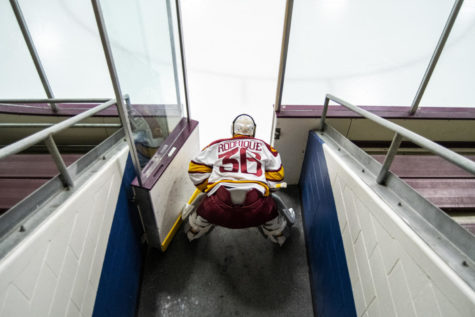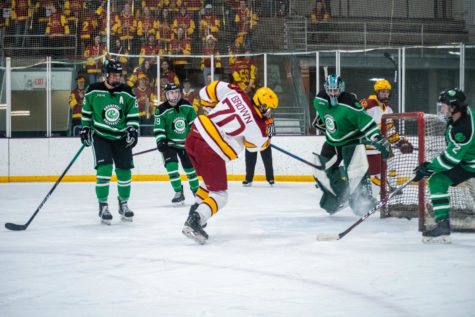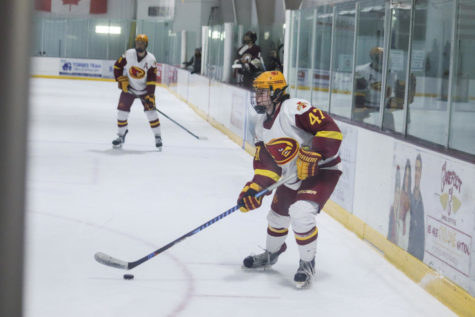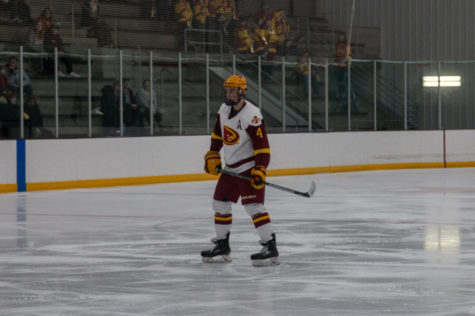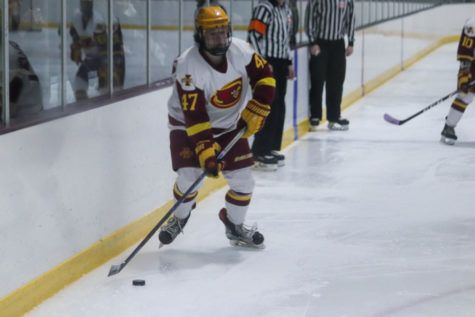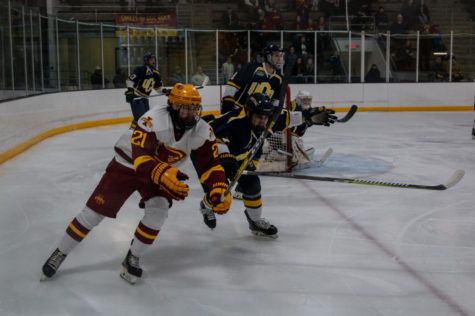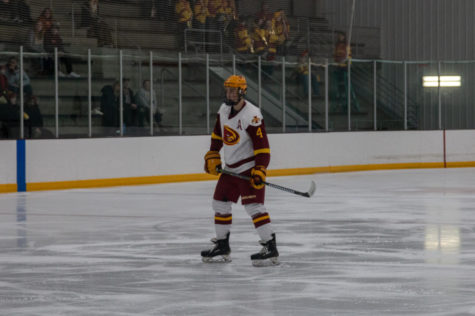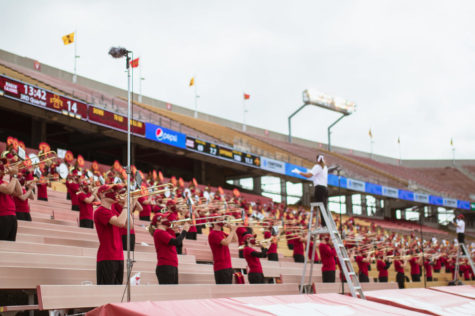Assistant coaches pursue higher education degrees
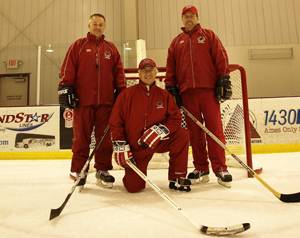
Left to right, Brian Wierson associate head coach, Alan Murdoch head coach and Mark Laingen head coach division 3 for the ISU Hockey team. Photo: Molly McKernan/Iowa State Daily
September 30, 2008
While the Cyclone hockey team is 3-1 going into this weekend’s series against Kansas, members on the team focus on being students as well.
Assistant coaches Brian Wierson and Mark Laingen have set the bar high in that department, going for their master’s and doctorate, respectively.
Wierson finds coaching good practice for teaching
Wierson, who is from Ames but lives in Nevada with his wife and daughter, is going for his master’s degree in higher education. He is doing this while working as assistant to coach Al Murdoch.
Part of the reason Wierson enjoys his field so much is because of the freedom it allows him.
“I like the professors that are teaching the courses and I like the fact that it is graduate level work … It’s more of a family; you have more opportunities to share your voice and communicate with your professor,” Wierson said. “It’s not like undergraduate work, where you get told what to do and when to do it and just take the tests. It’s very interactive.”
Wierson’s worked on a project over the summer dealt with retention of students at schools like Iowa State. The topic focuses on why students come in as freshmen and what keeps them coming back for their sophomore, junior and senior years, as well as what makes them leave early.
“We want to find out why students leave and what programs are going to work out better for the students. Those are things that every institution will want to know,” Wierson said.
Wierson also liked the fact that attending school allows him to coach the hockey team. The class Wierson is in right now is dealing with individual and group counseling, which focuses on getting people, whether in a group or individual setting, to better solve problems and answer questions themselves.
A key to this is giving the person the silent treatment if the instructor believes they might know the answer or be able to figure it out for themselves.
“The power of silence when somebody asks a question they might know the answer to is a very powerful one to see if they might be able to answer the question on their own. It’s very powerful in teaching, especially young people, about confidence and making the right decision,” Wierson said.
Working with the hockey team has been especially beneficial in helping him carry out the exercises he learns about in the class.
“The class I’m in now is very interesting and it’s great that I get to work with 28 young men because I get questions every day,” Wierson said.
Wierson even said that he would pass up a coaching job with an NHL franchise to head a graduate program like the one he’s in and stay in college hockey.
“I love pro hockey; I love the NHL; but where I’m at now, college hockey is the best in the world. You’ve got guys that are going to school and are trying to get an education,” Wierson said.
Laingen adds management skills
At the same time, Laingen is going for his Ph.D. in industrial and agricultural technologies.
Laingen spent 20 years in the industrial and manufacturing settings before coming to Iowa State.
“Then the opportunity came up to come back and finish my master’s and get my Ph.D., and that’s what brought me to Iowa State,” Laingen said.
Laingen did his undergraduate studies and master’s degree at Illinois State University.
His field of study also ties in with helping coach Cyclone hockey from a leadership perspective.
“I think a little bit of every class can be applied to this. It’s just the discipline of coursework and leadership quality and management. I think all of those qualities play a big part in coaching hockey,” Laingen said. “I’ve always treated running a hockey team like running a business; they are very similar.”
Unlike Wierson, Laingen would jump at the chance to coach an NHL franchise, but it wouldn’t be an easy decision. Laingen has always wanted to own a manufacturing company, but the opportunities to coach at that level are few and far between.
He stressed that he would choose the NHL coaching job because he would always be able to fall back on the industrial technology.
Laingen coaches hockey for the pure love of the game.
“I love the game, number one; I love being around the players and the high caliber of competition in division one and division three hockey. I love the competitiveness,” Laingen said.






